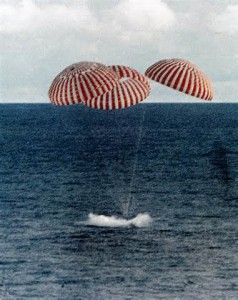 I remember April 17, 1970 very well. I was a senior in high school and looking forward to the future; I was still lamenting that fact that on April 10th Paul McCartney announced the breakup of the Beatles. It was also the day that Apollo 13 returned safely to earth.
I remember April 17, 1970 very well. I was a senior in high school and looking forward to the future; I was still lamenting that fact that on April 10th Paul McCartney announced the breakup of the Beatles. It was also the day that Apollo 13 returned safely to earth.
Apollo 13 was the third Apollo mission intended to land on the Moon, but a mid-mission oxygen tank rupture severely damaged the spacecraft and forced the lunar landing to be aborted. Despite great hardship caused by limited power, loss of cabin heat, shortage of potable water, and the critical need to get the carbon dioxide removal system going, the crew returned safely. The mission has been called a “successful failure.”
Howard’s movie misquotes the radio transmission made by Jack Swigert, Apollo 13’s courageous pilot. In the movie, the character is quoted as saying, “Houston we have a problem.” In reality, what was actually said was, “Houston, we’ve had a problem.”
Most are familiar with Ron Howard’s exhilarating movie version of the events produced in 1995. James A. Lovell, the astronaut who commanded the famous mission, is quoted as saying that the movie’s version of events was pretty accurate. However, Howard’s movie misquotes the radio transmission made by Jack Swigert, Apollo 13’s courageous pilot. In the movie, the character is quoted as saying, “Houston we have a problem.” In reality, what was actually said was, “Houston, we’ve had a problem.”
The distinction between these two tenses is extremely important and shows the intense training and renowned character of the astronauts. The two tenses can be the difference of engaging in something, or carrying on. “Had” implies that the problem had passed, and that coming up with a solution is the current reality. The astronauts made a choice to focus on the solution, not the problem. The oxygen tank severly ruptured, no point on dwelling on it, it was time to come up with a solution – creatively, quickly and calmly.
Focusing on the problem will only distort your mentality and rev up anxious thought. It’s all about choices, and in this case, the choice was to focus on the solution, not the problem. Ekhart Tolle, author of A New Earth and The Power of Now states that, “For a problem to exist, you need time and repetitive mind activity. If danger arises in the present moment, there may be emotion. There may even be pain. But that’s a challenge, not a problem.”
Not only was strategic leadership essential to the sustainability of the astronaut’s lives, it is also essential to the sustainability of organizations. Many organizations find themselves reacting to problems and dwelling on them time and time again. Over time, an organization can become so inwardly focused that it eventually ceases to be creative at all. It is no longer interested in doing things differently.
The organization simply reacts to the pressures of its environment. When an organization reaches this reactive stage, it is left only with three options. First, it can continue in its reactive mode and eventually cease to exist. Second, it can be acquired (or conquered). Or, third it can attempt a massive restructuring of the status quo.
The astronauts of Apollo 13 had to terminate an existing abort plan and new protocols were invented. Considerable ingenuity and acumen under extreme pressure was necessary for the safe return.
In business, it’s important to recognize challenges and not make them into problems. It is also important not to fall into the rut of reactive thinking and try to maintain creativity when finding solutions. Our minds are our instruments, our tools. In our everyday tasks, we use our minds for specific undertakings, and when they are done, the task is over. However, Tolle points out that “about 80 to 90 percent of most people’s thinking is not only repetitive and useless, but because of its dysfunctional and often negative nature, much of it is also harmful.” If we can grasp this thinking and the thinking and actions that the astronauts on Apollo 13 demonstrated, then we will be better able at solving problems in business and our everyday lives.
Today April 17th marks the 45th anniversary of the return home of Apollo 13’s astronauts and their remarkable decision making and strategic leadership. What will you take away from their lessons? How will their “successful failure” impact your everyday decision making?
 About the Author:
About the Author:
Gabriel Najera is the president & founder of the Najera Consulting Group. Gabriel is a frequent speaker to organizations. And, is a highly sought after advisor to corporate and nonprofit executives looking to develop a strategic thinking mindset.
Gabriel is the author of the forthcoming book, Lessons From the Field: From Farmworker to Fortune 500 Consultant. Gabriel is available to speak to your organization. To inquire about scheduling Gabriel for an upcoming speaking engagement or to inquire about our consulting services, please click on this link.










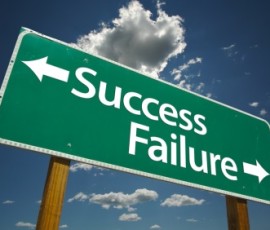
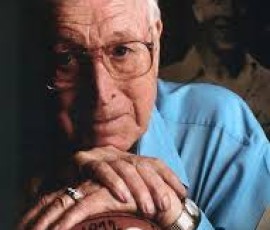

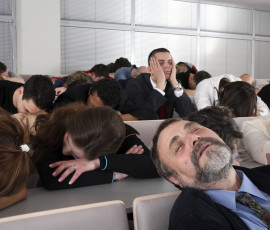

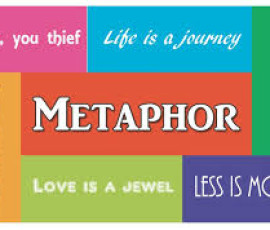
Great blog. Many times we miss the valuable gift that failure offers to us. Our educational system needs to stress this valuable gift.
Alex
Glad you’re enjoying the blog! Our twitter handle is @najeraconsult
Yes, we use WordPress. And no, you don’t need any coding knowledge to get going. WP makes it very easy.